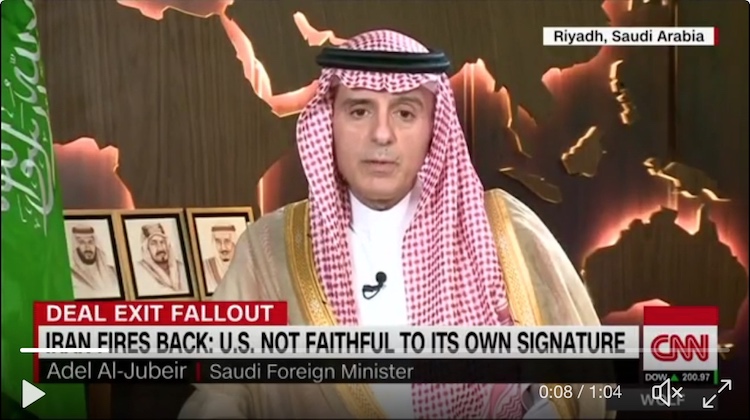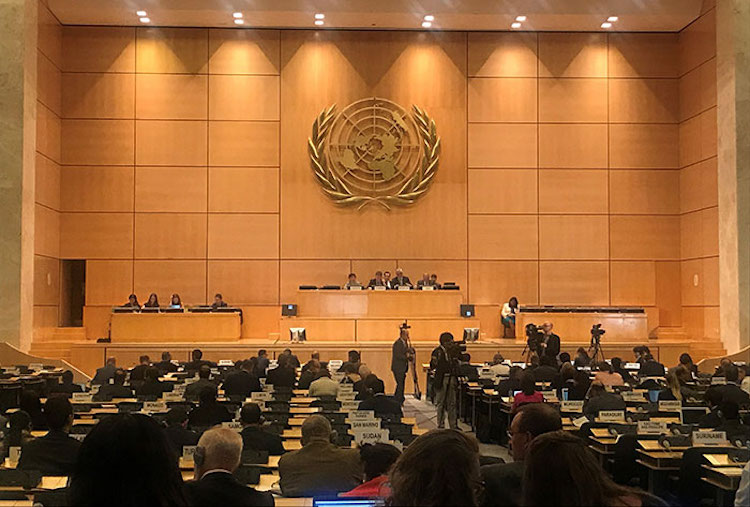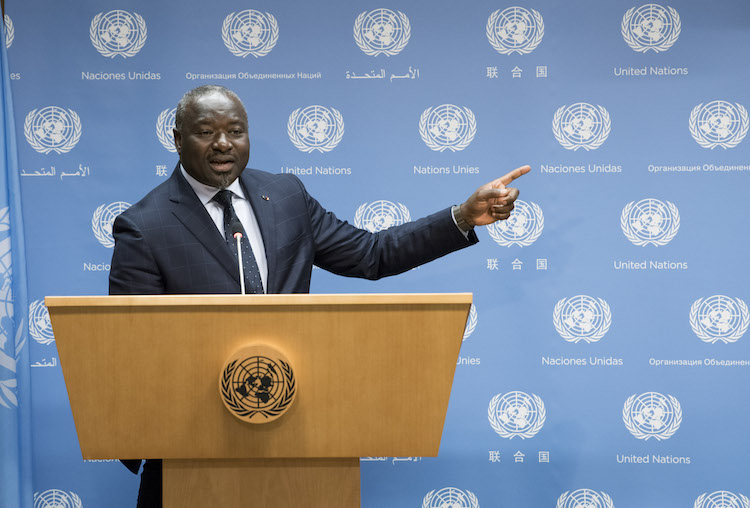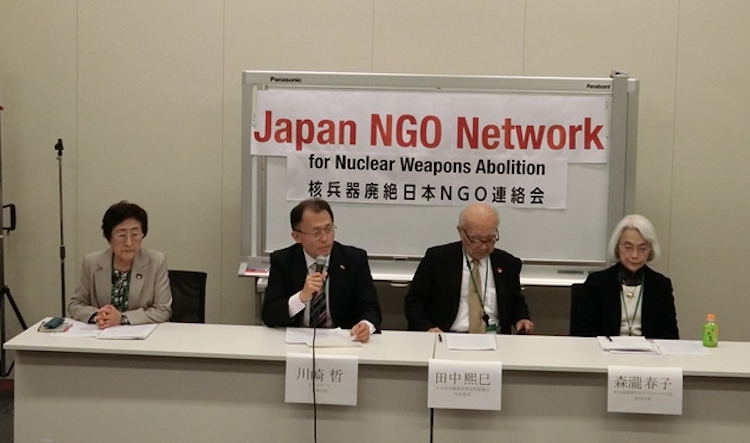By Rebecca Johnson* SEOUL (IDN) – I’m now in Seoul, taking part in the peace actions and international meetings organised by Women Cross the DMZ, referring to the demilitarized zone between North and South Korea. News has been dominated by fears that the US National Security Advisor, John Bolton, may have jeopardised the hoped-for Singapore […]
Thwart Saudi Threat To Acquire Nuclear Weapons
By Daryl G. Kimball and Thomas Countryman Following is the text of Statement from Daryl G. Kimball, Executive Director of the Arms Control Association and its Board of Directors Chairman and former U.S. Assistant Secretary of State for Nonproliferation,Thomas Countryman,– The Editor WASHINGTON, D.C. (IDN-INPS) – We are deeply disappointed by the counterproductive response from […]
The Bumpy Road to Non-Proliferation Treaty Review Process
By Sergio Duarte The writer is President of Pugwash Conferences on Science and World Affairs. NEW YORK (IDN) – On July 1, 2018 the Parties to the Treaty on the Non-Proliferation of Nuclear Weapons (NPT) will celebrate the fiftieth aniversary of its opening for signature. Although criticised as discriminatory for establishing different rights and obligations […]
Nuclear Weapon States’ Long Arm Seen Behind Deferral of Landmark UN Conference
By Alyn Ware The writer is Co-Chair, World Future Council Disarmament Commission. NEW YORK (IDN) – May 14, 2018 was supposed to see the opening at the United Nations of a three-day High-Level Conference on Nuclear Disarmament, scheduled to discuss “effective nuclear disarmament measures to achieve the total elimination of nuclear weapons, including, in particular, […]
Pugwash, UN and ICAN Warn of Ramifications of US Quitting Iran Nuclear Deal
By J Nastranis NEW YORK (IDN) – The announcement by President Donald Trump to abandon the Iran nuclear deal is “a costly mistake that can hold wide-ranging ramifications beyond its strictly nuclear parameters,” the 1995 Nobel Peace Prize winner Pugwash Conferences on Science and World Affairs have warned. The decision undoes many years of constructive […]
Faith Communities Urge Geneva Conference to Pave the Path to a Nuclear-Weapons-Free World
By Jamshed Baruah GENEVA (IDN) – Diverse faith-based organizations and individuals are appealing to States gathered at the UN in Geneva to spare the world a nuclear catastrophe and foster sustainable development for the good of humanity affirming moral and ethical imperatives. Twenty groups and individuals from different faiths, including Christian, Quaker, Muslim and Hindu […]
UN and CTBTO Hail End to Nuclear Testing by North Korea, Denuclearization Remains a Mirage
By Ramesh Jaura BERLIN | VIENNA (IDN) – UN Secretary-General António Guterres and Comprehensive Nuclear-Test-Ban Treaty Organization (CTBTO) Executive Secretary Lassina Zerbo have welcomed the announcement by the Democratic People’s Republic of Korea (DPRK) to halt its nuclear testing programme and to dismantle the test site. The announcement came six days ahead of the DPRK […]
Strong Plea for Early Entry into Force of Nuclear Ban Treaty
By Jamshed Baruah GENEVA (IDN) – On the eve of a crucial international conference, an eminent Buddhist organization advocating a nuclear-weapon-free world has called for the signing, ratification and early entry into force of the Treaty on the Prohibition of Nuclear Weapons (TPNW) adopted by 122 UN member states as a sign of their resolve […]
Pressure Mounts on Japan to Join the Nuclear Ban Treaty
By Katsuhiro Asagiri TOKYO (IDN) – Japan is coming under pressure from within to sign and ratify the UN Nuclear Ban Treaty, which acknowledges the “unacceptable suffering” of the hibakusha – survivors of hitherto the first ever atomic bombings in Hiroshima and Nagasaki in August 1945. 122 member nations of the United Nations adopted what […]
Campaign For Moving ‘Nuclear Weapons Money’ to Boost Peace
By J Nastranis NEW YORK (IDN) – While governments meet in New York for the first ever United Nations High-Level Conference on Nuclear Disarmament from May 14-16, 2018 campaigners for ‘zero nuclear weapons’ will be busy counting one million specially designed notes each of $1 million value, adding up to $1 trillion. The amount of […]









